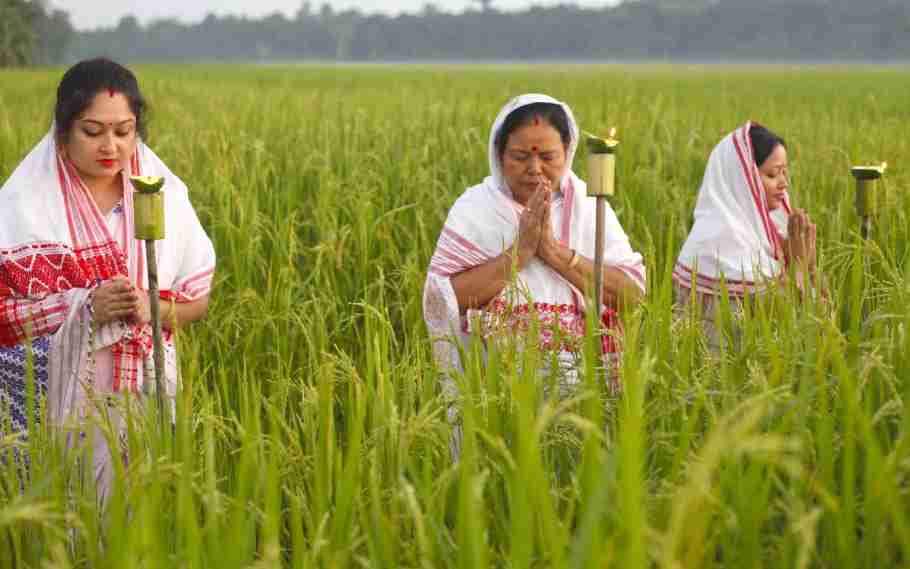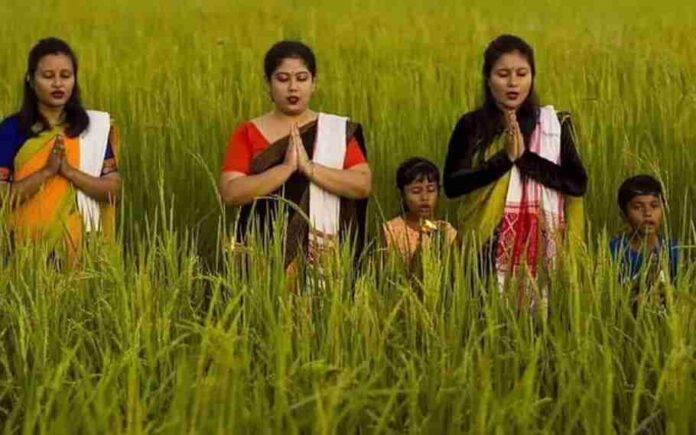Kati Bihu is one of the three Bihu festivals that is celebrated in Assam. Also known as Kongali Bihu is celebrated to mark the first day of the Assamese month Kati which generally falls in October.

The Significance of Kongali in Kati Bihu
The word “kongali” signifies “poverty,” implying that barns are empty and food is limited. Paddy is growing in the fields at this time of year, and farmers are praying to God for a bountiful harvest.
Harvesting and Celebration
The Bihu signifies the relocation of the rice crop, which is an important stage in the paddy crop’s life cycle. To fight off evil spirits and pests, farmers burn candles at the foot of the Tulsi plant at home, whirl a piece of bamboo in the fields, and perform rowa-khowa chants.
The Ancestors and Devotion
People light clay ‘Diya’ (lamp) in front of the tulsi plant, the granary, the garden, and the rice fields on this Bihu. This day is also considered auspicious since it is thought that the spirits of the ancestors will visit to bestow blessings. This also signifies the generations and legacy of Assamese Culture.

Penance and Worship
Kati Bihu is all about penance and devotion towards elders although the meaning and the way it is celebrated has completely changed and has lots of difference in the way it was celebrated in the past.
This is a festival that surpasses all the caste, creed, social class and even the religion. This is something that unites people and fills them with great zeal and enthusiasm. This unity is the reason that defines the profound beauty of the people and the culture of Assam and despite of the difference this binds the people together.
Also Read: Vistara Festive Sale is here! Domestic fares starting at Rs. 1499











